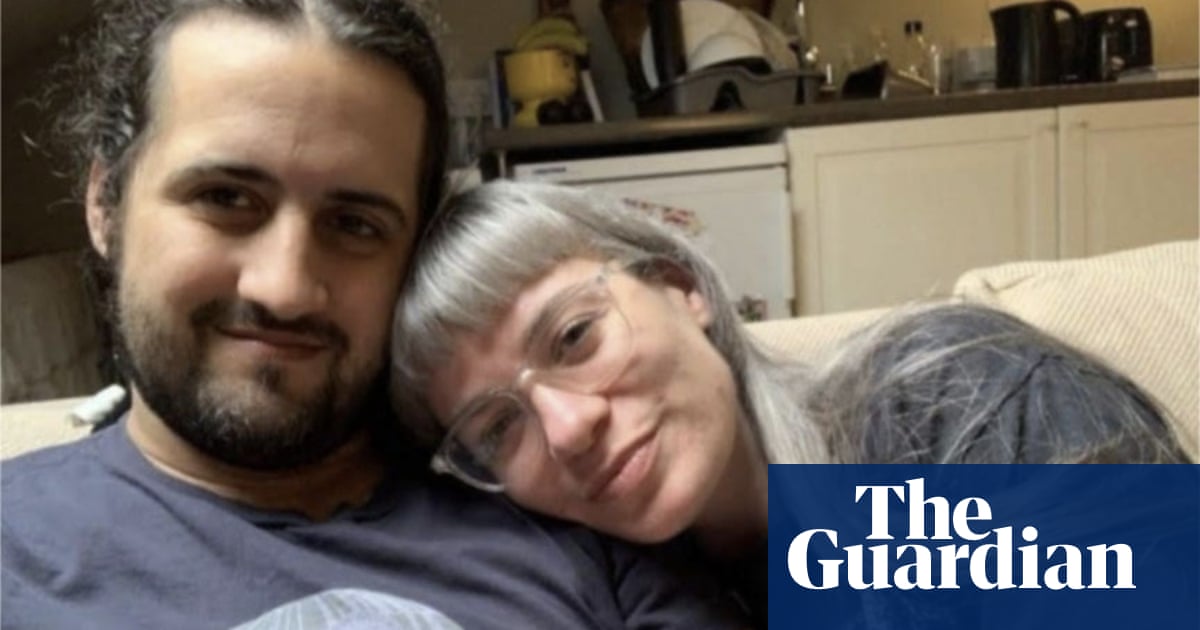
hen Ladj Ly was a teenager, his mate stole a lion cub from the circus. The pair kept it in an apartment, but it cried for its mother, upset the neighbours – and the people who ran the circus demanded it be returned.
Fast forward two decades and Ly uses that real-life catnapping as narrative spur for his award-winning debut film Les Misérables. The setting is Montfermeil, a tough banlieue north-east of Paris where he was born and raised. Montfermeil is also the location of the Thénardiers’ inn in Victor Hugo’s 1862 novel Les Misérables, the place where former convict Jean Valjean meets the orphan Cosette.
Ly is highlighting the continuities between 19th-century fiction and 21st-century reality: the misérables of present-day France are his neighbours, overwhelmingly families of African or Arabic heritage, suffering poverty, police racism, democratic deficit and official neglect. “The cub is clearly a metaphor for being deprived of freedom, of being unnaturally trapped,” he says. “The misery of Montfermeil has never been really addressed. We’re still trapped, still misunderstood, still underfunded.”
And yet his film starts not with misery but with joy. France is celebrating World Cup victory over Croatia in 2018 and two friends, Buzz and Issa, head from their concrete jungle to the Champs Elysées to join the party. For Lys, the celebrations echoed those he witnessed aged 18 in 1998 when a team of different colours, creeds and cultures also won the World Cup and showed the world that France was multicultural. “I’m a little older than the characters of the film, and 12 July 1998 marked me for life. I remember it to this day”
But surely, I gently suggest to Ly, the bonds created by football are delusive. That much was argued by a Parisian academic Marc Perelman in a brilliant book called Barbaric Sport: A Global Plague. Such triumphs, Perelman wrote, “created an illusion of fraternity, celebration and joy of being together while in this enchanted and magic world”.
“I think that’s right,” says Ly. “Football is the new opium of the masses. “But for a moment it was magic.” In the film, he depicts what happens when the magic stops.
They return to Montfermeil no longer at one with the loved-up French nation, but back in a deprived, class-bound, ethnically profiled, impoverished banlieue, for all that 30 different nationalities have learned to live together there. In one scene, some girls waiting for a bus are hassled and sexually harassed by a racist cop. One girl starts to film the harassment on her phone, but the cop snatches it and smashes it on the ground. “That sort of thing happened to me a thousand times,” says Ly. “I was 10 when I was first stopped and searched by a policeman.”
Ly started filming at any early age. “I bought my first camera aged 17 and made my first feature-length documentary during the 2005 riots. The riots erupted at the bottom of my building, and ultimately I had 100 hours of rushes.” At the time, the rioters were condemned by interior minister Nicolas Sarkozy as “racaille” or scum, a slur that still outrages Ly. “He caused the riots by underfunding us and using such words to get the far-right racists to support his election campaign rather than the National Front.” Just possibly it worked: Sarkozy was elected French president two years later.
Supported by his collective Kourtrajmé (which is French slang or verlan for court métrage or short film), Ly edited footage he shot during and after the riots and then uploaded a web documentary called 365 days in Clich-Montfermeil. “I wanted the insider’s perspective on what happened during the riots rather than the one the media portrayed, so I put it online. This was before YouTube, so it was quite revolutionary.”
Ly went on to direct another feature-length documentary set in the African homeland of his parents, 365 Days in Mali. He made it to contradict the media image of the country as the most dangerous place on Earth because of Al Qaida and Islamic State. Once more, he couldn’t get traditional broadcasters to screen the film so he put it online.
Ly wasn’t done with filming the streets where he lives. He decided to fictionally recast some of the incidents of his childhood to create a drama about Montfermeil, made by and starring people he knows. The result was Les Misérables. Among those stars is his own son, Al-Hassan Ly. He plays the nerdy film obsessive Buzz who incessantly films his estate, just as Ladj Ly did back in the day. Buzz’s eye is hardly innocent: he uses a drone camera to spy on girls getting undressed in their flats until they find out what he’s up to and threaten to beat him up if doesn’t delete the footage.
But it’s the stolen cub that precipitates the riot Ly depicts in Les Misérables. In order to defuse a looming war between tooled-up circus folk and local toughs, the cops seek out the boy who nicked the cub. But when they find Issa their arrest goes horribly wrong, provoking Montfermeil’s youth to rise up and propelling Ly’s film into a final 30 minutes of deranged violence.
I tell Ly his film reminds me of Spike Lee’s Do the Right Thing, particularly the scene in which Lee’s character chucks a dustbin through a pizzeria thus catalysing a riot. “I know what you mean, but I’m not very much influenced by other people’s films. I try not to watch them so I don’t copy them.” That said, he accepts the parallel between Les Misérables and the last great French movie set among the oppressed of Parisian banlieues, Mathieu Kassovitz’s La Haine, which is being rereleased in the UK this autumn 25 years after it was made. “What’s sad is that my film needed to be made. Things have clearly not changed in France between La Haine 25 years ago and Les Misérables now.”
Well, there are differences between the films, not least the treatment of the police. “I haven’t shown all the cops as racists,” says Ly. “And I’m certainly not showing the boys who riot as innocent victims. Reality is more mixed up. There are some rotten eggs in the police, but not all. The problem is that many cops come to Montfermeil after training and they have no idea what they’ve got into. They’re terrified. But they are living tough lives, too.”
In the film, Ly dramatises this through the character of newly arrived white cop called Stéphane, an outsider from Cherbourg who asked for a transfer to Paris to improve his chances of gaining custody of his son from his ex-wife. For all his gaucheness around people of colour, he is disgusted with how his colleagues police the neighbourhood and behaves with compassion to the local youth, unlike his crew boss, the cynical racist Chris, or Chris’s compromised partner, Gwada, both of whom have become desensitised to the brutal way they police their patch.
This nuanced view of policing is all the more surprising since Ly himself has had trouble with the law. The French daily Libération reported last December that the director served a two-year prison term for complicity in a kidnapping case. When I ask Ly about this, though, he confines himself to telling me he sued two rightwing magazines, Valeurs actuelles and Causeur, for racist slander in falsely reporting he had been convicted of taking part in an attempted murder. “They were making up these stories about me because they didn’t want my voice to be heard. They wanted to undermine the impact of the film.”
If so, they failed. Les Misérables has not only been feted in France, winning the César for best film and the jury prize at Cannes, but shortlisted for this year’s Oscars. He tells me some of the profits for the film have been used to bankroll a film school for local kids, giving them the skills that Ly acquired autodidactically. “French film schools are really just for the elites.” Maybe that’s why French cinema has become so boring. “Exactly!” he laughs.
At the end of the film, a quote from Hugo’s novel pops up on screen. “Remember this, my friends: there are no such things as bad plants or bad men. There are only bad cultivators.” The suggestion is that the French state has for centuries poorly cultivated its most deprived citizens; now those citizens have to cultivate their own. Indeed, the only space offering respite that is depicted in the film is a kebab shop run by a serene ex-jihadist, and the only moral force on the streets is a group of Muslim men who strive to get the youth to forgo crime. I ask Ly if he is a Muslim, proselytising for his faith in the film? He declines to say: “That’s private.”
Ly is particularly interested in how Les Misérables will be received in francophone African countries. “I hope that the film will discourage Africans from emigrating to France, but instead stay home and develop their own countries.”
Ly’s own parents were part of the post-second world war generation of Malians invited to France to do jobs the French disdained, contemporaries of the Windrush generation invited to Britain. “The contribution of immigrants to France is largely ignored, even though they fought for France in world war one, world war two and helped France recover after the war. Still the descendants of those immigrants are treated badly, as though they are not French.”
At least President Macron, having reportedly been shocked by the France depicted in Les Misérables, has ordered an investigation into poverty in the banlieues. Ly welcomes this, but adds: “How could he not have known the extent of the problems I show in the film? It’s not like it’s news. It’s been like this for ever.”
A few months after interviewing Ly in the spring, I catch up with him again in a world changed utterly by coronavirus and the resurgent Black Lives Matter movement, prompted by the death of George Floyd. Ly tells me he’s been in lockdown with his family in Montfermeil, writing films and watching his beloved neighbourhood struggle. “Covid has highlighted all the existing inequalities and accentuated them. This allowed us to show the failures of our system in an unprecedented crisis.
“The situation was quite complicated since many families were already living in precarious conditions, but the confinement caused many residents to lose their jobs, which further increased the instability of their situation. Many could no longer provide for themselves and their children. A food bank has been set up in Montfermeil to help them.”
As for Black Lives Matter, its rise this year has, for Ly, shown that the problems of institutional racism and police brutality are not only American. “It’s nothing new, but the death of George Floyd has given it a face and visibility unmatched before, which of course is abnormal and deplorable. We must no longer wait for men and women to die before they are heard.”
Floyd’s killing resonated strongly for Ly since its circumstances uncannily paralleled the death of a Malian-French man, Adama Traoré, who in 2016 died on his 24th birthday in Beaumont-sur-Oise, north of Paris, while in police custody. Traoré’s family, backed by independent medical reports, insist that he died under of the weight of three police officers as they tried to restrain him. Lawyers for the officers deny the police were at fault.
“Today,” says Ly, “the BLM movement allows other fights like that of the Traoré family in France to finally be heard. Although the protests were not as numerous as in the US, marches and a rally were able to take place in Paris, which had never been the case before.”
The leading problem with your film, I tell Ly, is its dearth of women. We only see a few in back rooms or kitchens; none is a significant protagonist. “Maybe you will see more in my next films,” he says. “I haven’t decided yet.” He is planning more films: Les Misérables is the first in a projected trilogy. The second will go back 10 years to the struggles of the mayor. “And then I will go back even further into the history of Montfermeil. I’m not done with it.”
But if Montfermeil is as miserable as you suggest, why carry on living and working there? “Because it’s my home! That’s where I belong.”
Les Misérables will be released in cinemas in the UK and Ireland on 4 September.
This article was amended on 20/08/20 to correct the spelling of Kourtrajmé.












